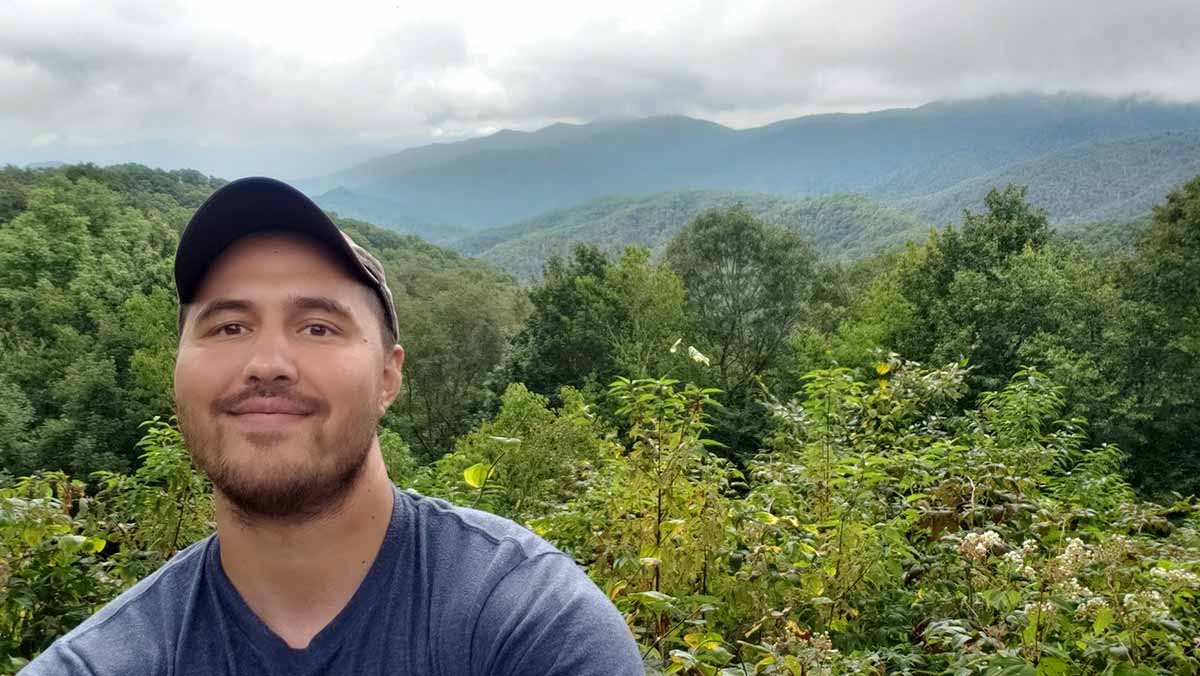“Why Me?”: Questions of Faith

Gus Bostdorf
I will never forget the day the doctor told me I had cancer. At that moment, my entire life froze. I remember staring out the window on that January day, taking in the barren ground and the cloudy sky. Like most cancer patients, the one prevalent but agonizing question to enter my mind was, “Why me?”.
With an upbringing in a Roman Catholic church, I was taught “God wills it.” Since I was young, my mother took me and my sister to Sunday Mass, not so much to be Catholic but rather hoping the stories and teachings within the Bible would help us find our moral compass one day. She hoped attending church would inspire us to be better people. With the challenge of having cancer, I decided to dig deeper for answers. I wanted to be enlightened.
The chemotherapy regimen planned out by my doctors involved impatient treatment with multiple days in the hospital. Therefore, I went to my public library to checki out books on cancer experiences and spirituality as reading material during my treatments. As I started my cancer journey and began reading more, I realized there wasn’t a normative approach to cancer for me or any cancer patient. In other words, everyone experiences their cancer in their own world view. I asked myself a really big question, “What is God?”. Is God an abstract idea of goodness that people do unto each other? Or is there some supernatural being responsible for our existence whom we couldn’t begin to comprehend? I was taught that God was loving and forgiving. Therefore, how could a God give cancer to anyone, especially children?
I remember how I suddenly became the center of attention within my small town and church. People felt the need to say something to me. I heard all the generic religious answers. First, I was told no one deserves cancer, but then it morphed to God was making me more humble. Then I was told it was a test from God. The most common answer was God gave me cancer to make me stronger. I was told 10 different reasons as to why God gave me cancer, but of course they can’t all be true. Moreover, people told me it was the power of prayer that would make the difference. Thus, my thought was if God wills everything then saying prayers won’t make any difference. Somehow this was part of God’s mysterious ways—we don’t know why God does this, but just have faith. With all this conflicting rhetoric, I was left lost in my thoughts.
As my treatments progressed, I started to shape more of my own thinking. Religion is the practice and worship of God. Dogmatic truths based on man-made concepts. Religion is the belief in someone else’s experiences, but spirituality is the belief in your own. Certain quotes resonated with me, such as Henry David Thoreau’s, “Men lead lives of quiet desperation” and Jack London’s, “The function of man is to live, not to exist.” I also found other authors’ input just as insightful. Rabbi Kushner’s, “When Bad Things Happen to Good People,” breaks away from traditional thinking. Rabbi Kushner lost his son to a terrible disease and proposed a thought that maybe God wasn’t all powerful. Maybe when people suffer, God suffers too.
Consequently, even though I didn’t know those “big answers, I still looked to my faith. I wasn’t an atheist in a foxhole. The days when I was completely beaten down from treatment, I would often pray, “God, I’m suffering, I need your help.” Those prayers acted as a form of meditation, relieving me at times. I didn’t want religion to give answers to why I had cancer, but rather I saw faith as a source of comfort and even hope. Of course, there were many rough days while undergoing treatment, with plenty of scares along the way. In those moments, I found myself praying for guidance and support. Despite all the chemo, I was able to persevere through the adversity and, eventually, get off treatment. I have been in remission for five years . To this day, I wonder if I was just really lucky, or maybe there was someone looking out for me.
As a result, there is so much I still don’t know. I don’t have answers to why things happen the way they do. There are many things that cancer patients experience and see that would make them question pretty much everything. However, there was one remarkable thing I will always remember. When I was enduring my treatments, people went out of their way to help me. I remember nurses who stayed past their shifts to keep me company. I remember elementary school kids writing get well cards. I remember my teachers and neighbors stopping to visit me in the hospital so they could cheer me up. I noticed how it connected people on a deeper level. Even though I don’t fully understand it, there was no doubt something very spiritual about it. To me, that will always be the greatest example of God’s love.
If you're having trouble accessing this content, or would like it in another format, please email the Penn State College of Medicine web department.
